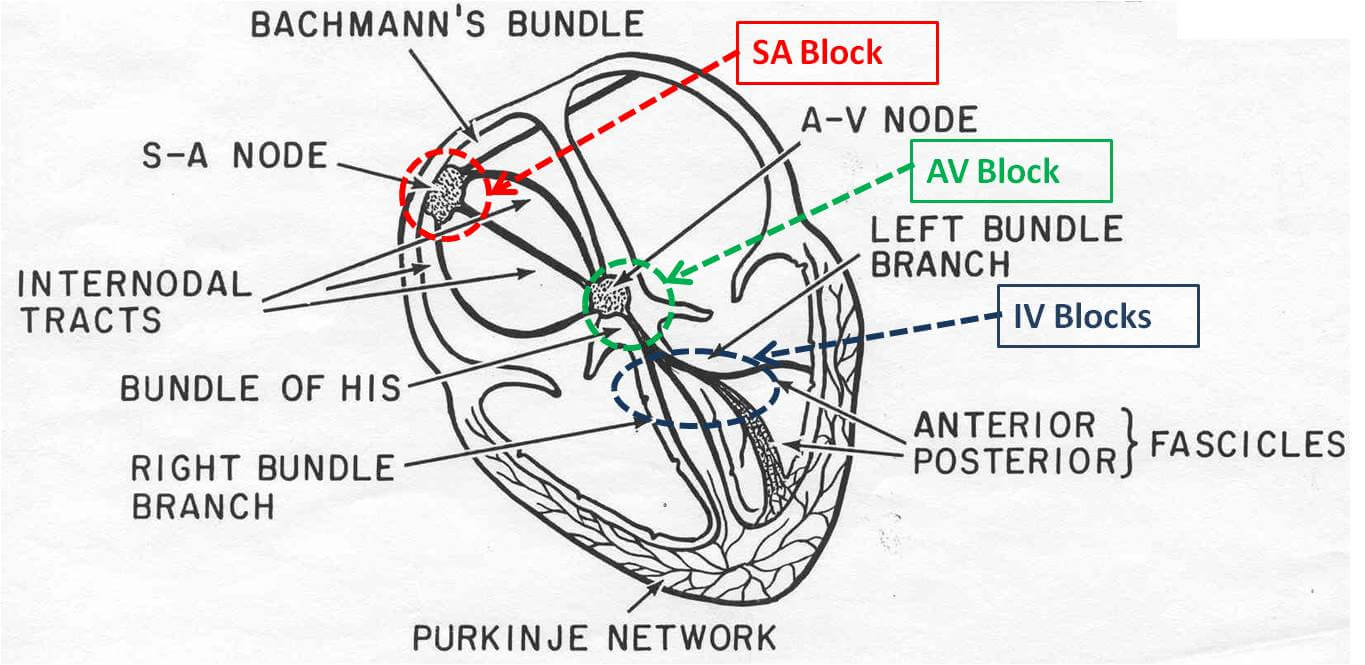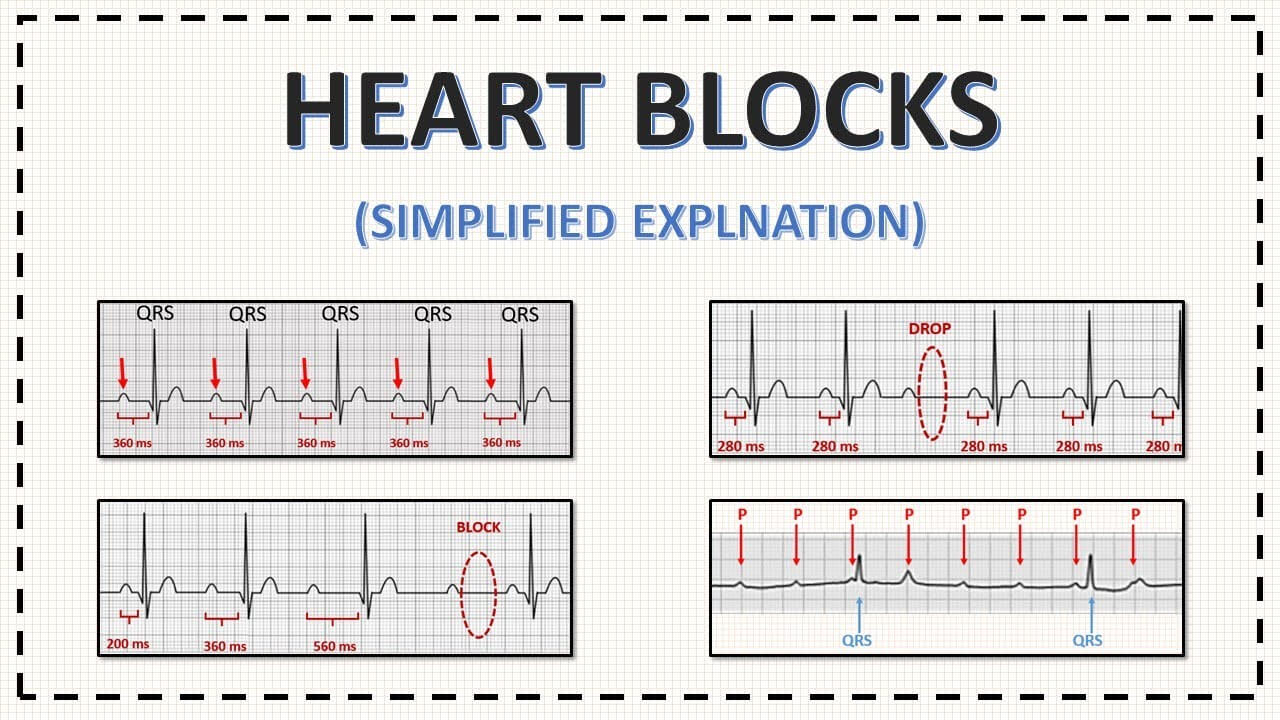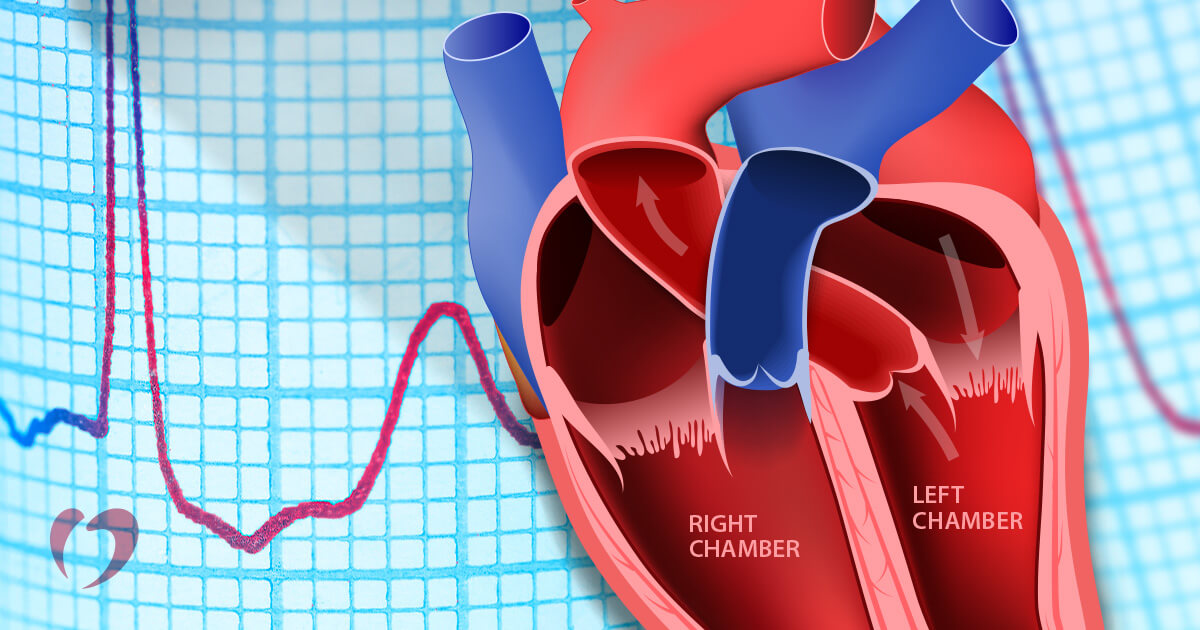FTC disclaimer: This post may contains affiliate links and we will be compensated if you click on a link and make a purchase.
Heart block is a common condition that can cause difficulty in breathing. Heart block can be caused by several factors, including age, genetics, and heart disease.
Symptoms of heart block include chest pain, shortness of breath, and fatigue. Treatment for heart block depends on the type and severity of the block.
Heart block is usually associated with a heart attack or cardiac arrest, though it is a different condition altogether. A heart gets blocked due to faulty operation of the cardiac conduction system.
An individual living with a heart block may not even realize it until and unless they experience specific symptoms related to the condition.
Having a complete understanding of the condition is critical to prevent the onset of serious complications that can even lead to death. Go through the following sections to take the right step at an early stage of the condition.
Heart Block: What It Means?
In simple words, the following two statements define a heart block precisely:
- The heart doesn’t beat at the desired rate
- The heart doesn’t beat in the desired rhythm
A normally functioning heart should beat 60-70 beats per minute when the body is entirely at rest.
As far as the rhythm is concerned, the heartbeats should follow a regular pattern. Slowing down the heart rate and irregular heart rhythm is called heart block.
In other words, heart block is a disorder in which the electrical signals that control the heartbeat are blocked.
This can cause the heart to beat too slowly, quickly, or irregularly. Heart block can be caused by various problems, including damage to the heart muscle, scarring from a previous heart attack, or abnormal heart growth.
Heart Block: What Are the Causes?
The cause of this condition depends on whether a patient has it from birth or has acquired it at a later stage. Here is the detailed list of heart block causes:
Pregnancy Time Complications:
Certain conditions at the time of pregnancy can cause heart block in the unborn child. If the mother has lupus, it may cause a congenital heart block in the baby.
Congenital Heart Defects:
The defects in the heart’s structure of the baby may cause the condition. These defects may occur in the interior walls and valves of the heart or the veins and arteries.
Diseases:
Heart block may occur at any stage of life due to certain diseases like coronary heart disease, rheumatic fever, cardiomyopathy, sarcoidosis, Lev’s disease, and Lenegre’s disease.
Damage to the Heart:
Heart attack and heart failure are sometimes responsible for heart block.
Medicines:
Medications taken for certain diseases may also cause the condition.
Surgery:
Another cause of the condition can be a surgical procedure.
In addition, people exposed to smoke and toxic substances are also at the risk of developing heart block.
Heart Block: How It Happens?

The cardiac conduction system in the body is responsible for producing contractions in the heart’s four chambers.
The sinoatrial node (SAN) in the right atrium chamber produces electrical signals that cause the two atrium chambers to contract and supply blood to the ventricle chambers.
These signals are carried to the atrioventricular node (AVN), from where they are relayed to the ventricle chambers through the Bundle of His, left bundle branch (LBB), and right bundle branch (RBB), and Purkinje fibers.
The ventricle chambers contract and supply blood to the body by receiving the signals.
Each cycle of this procedure produces a heartbeat. Heart block occurs when the electrical signals are:
- Delayed to reach the ventricle chambers
- Partially blocked from reaching the ventricle chambers
- Completely blocked from reaching the ventricle chambers
Heart Block: What Are the Types?
The most common types of heart block are those occurring at the AVN. These include:
First-degree Atrioventricular Block:
In this condition, the electrical signals are slowed down and delayed in reaching the lower two ventricle chambers. In general, the condition causes no symptoms and is considered safe.
Second-degree Atrioventricular Block Mobitz Type I:
The signal to the ventricle chambers is slowed to the extent that one beat is skipped in a while. Mild symptoms may be noticed in this condition.
Second-degree Atrioventricular Block Mobitz Type II:
The signals are partially blocked from reaching the ventricle chambers. The patient may notice severe symptoms in this condition.
Third-degree Atrioventricular Block:
The most serious condition is when the electrical signals are entirely blocked from reaching the ventricle chambers.
Heart block may also occur at other components of the cardiac conduction system:
SAN Blocks:
The block occurs when the SA node fails to produce electrical signals. The condition is normal because the AV node can take over the SA node to produce 40-60 heartbeats per minute.
Bundle Branch Blocks:
The blocks may also be experienced in the LBB and RBB that relay electrical signals to the ventricle chambers.
RBB block is less concerning because even if the right branch is blocked, the electrical signal can travel from the myocardium of LBB to reach the right ventricle chamber.
Heart Block: What Are the Symptoms?
The patient suffering from second and third-degree blocks can experience the following symptoms:
- Fainting (syncope) or feeling of fainting (presyncope)
- Palpitations (irregular heartbeat)
- Lightheadedness
- Chest pain and discomfort
- Difficulty in breathing
- Fatigue (especially after performing exercise or other physical activities)
Heart Block: How Is It Diagnosed?
Doctors usually ask to consult a cardiologist or an electro-physiologist for heart block diagnoses. A physical examination is performed to analyze the heartbeat rate. The advanced diagnostic procedures performed using specialized equipment include:
Electrocardiogram Diagnose:
The most common heart block diagnosis procedure is performed using Electrocardiogram (ECG or EKG) setup.
The heart’s activity is traced on paper using three waves.
- The P wave traces the activity of the atrium chambers.
- The QRS wave traces the activity of ventricles.
- The third one is the T wave which traces the heart’s activity at the resting stage.
Sizes, shapes, patterns, and timings between the three waves help the expert diagnose the condition.

24-hour ECG (Holter Monitor):
The heart’s activities are recorded for 24-48 hours.
Event Monitor: The monitoring system traces the heart’s activity for weeks. The patient must wear the system while performing everyday activities every day.
Echocardiogram: The procedure involves an ultrasound scan of the heart’s muscles and valves.
Electrophysiology Test: The test is conducted using a wire that produces electrical shocks to diagnose the abnormal heart rhythm.
Exercise Stress Test: Performed in children, the test determines the heart’s electrical conduction system during exercises.
Heart Block: What Are the Treatments?
Temporary heart block may automatically vanish once the associated cause is addressed. For instance, stopping a medication that may be causing the condition can help the situation.
Here is what you need to know about the treatment options:
First-degree blocks and SAN blocks don’t need any treatment.
Congenital heart block can be treated if diagnosed at the right stage by treating the associated condition in the mother.
Bundle branch block can be treated with the help of medications that must be strictly given under an expert’s guidance.
Pacemakers are the battery-operated devices implanted in the body to treat the third-degree block and, in some cases, the second-degree block.
The successful use of these devices enables the patient to live healthy for many years.
Heart Block: What Are the Risk Factors?
The condition, if left untreated, may trigger severe health conditions, which may include:
- Arrhythmia
- Cardiac arrest
- Bradycardia
Chances of sudden death can’t be ignored in severe heart block conditions.
Visit the doctor if you experience the symptoms associated with the condition. An early-stage diagnosis should prevent the condition of heart block from worsening.
Bottom Line
Heart block is a serious condition that requires immediate medical attention. See a doctor immediately if you experience any of the symptoms listed above.
Many risk factors are associated with heart block, so it is essential to be aware of them and take steps to lower your risk.
Treatment for heart block depends on the severity of the condition but may include medication, surgery, or a pacemaker.






![14 Effective Home Remedies for Cough [Ultimate Guide]](https://healthyious.com/wp-content/uploads/2020/01/14-Effective-Home-Remedies-for-Cough-Ultimate-Guide-640x360.jpg)

